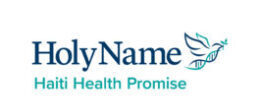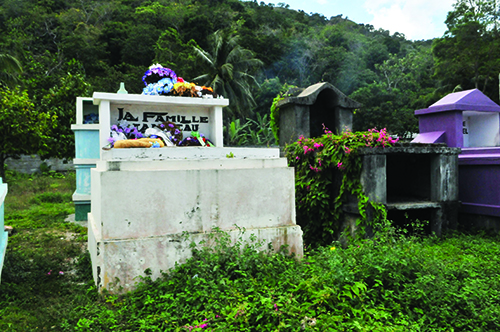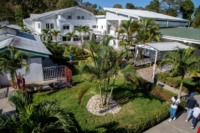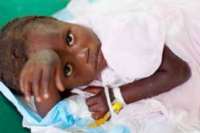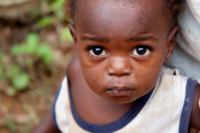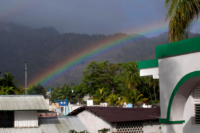Due to the challenges of living in extreme poverty, the life expectancy of the average Haitian man is 61 years. The average Haitian woman is only expected to live 64 years.1 Children can catch a plethora of diseases that can end their lives early due to lack of nutrition
or lack of emergency care, and many babies and mothers die during childbirth because there are no hospitals or experienced midwives available. Death is a part of life no matter where you are from, but for Haitians, it is in the foreground.
Religion and Death in Haiti
As in many cultures, religion decides how a Haitian family will deal with the death of a loved one. Haitian Christians often carry out the same funeral services as Christians in the USA, including gathering family members to share stories of the deceased at a wake, grieving and praying during church and burial services, and finally congregating at a reception where light food and drinks are served. Family members will give the deceased a final bath to cleanse them for the afterlife.2
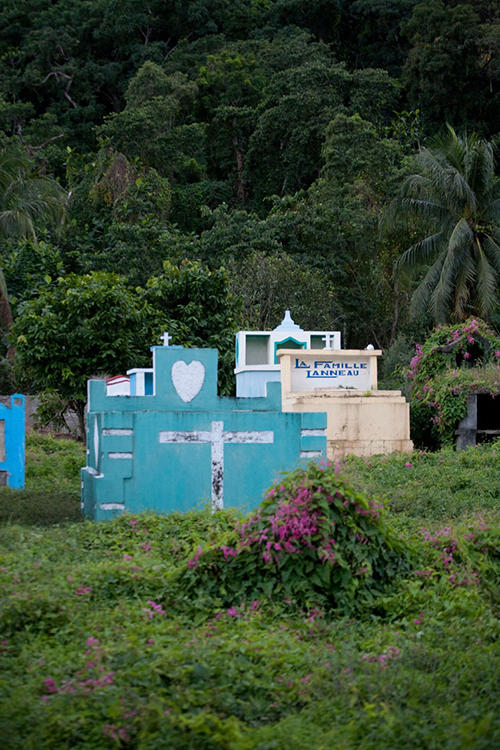 Haitians who follow Voodoo have different rituals that adhere to their beliefs of a life after death. The soul of the deceased is believed to linger for about a week after the physical death, and in that time a priest or priestess will perform a ritual to release the soul from the body, allowing the soul to remain in dark water for the next 366 days. If this ritual does not take place, the soul of the deceased is left to roam the earth as a bad omen.
Haitians who follow Voodoo have different rituals that adhere to their beliefs of a life after death. The soul of the deceased is believed to linger for about a week after the physical death, and in that time a priest or priestess will perform a ritual to release the soul from the body, allowing the soul to remain in dark water for the next 366 days. If this ritual does not take place, the soul of the deceased is left to roam the earth as a bad omen.
For souls that have been released to dark waters after 366 days, another ritual is performed to call the soul to a clay jar, called a “govi,” where the spirit of the family member will be seen as a tool for guidance and life lessons for the family.3
The Cost of Death in Haiti
In many cultures, funeral services are customarily held to honor the life of the deceased. But what if you cannot afford a funeral? The average Haitian funeral costs the equivalent of about $540 USD, but many Haitians don’t even make that much money in a year.4 Cremation is not a preferred option due to the fact that many Haitians believe the body must stay intact for the spirit to cross over to the afterlife.5
If the family of the deceased is wealthy, they will usually own a crypt, and depending on how important they would like the deceased to seem in the eyes of the community, they may even pay mourners to attend the services. On the other hand, poor Haitian families have to rent a space for their loved ones to rest.6 If a family cannot afford to properly bury a loved one, they may abandon the body, making it impossible to properly honor that person, regardless of religious beliefs. Many times, poor families will leave their deceased loved ones in the hands of others, afraid to claim them as to not be forced to pay for a burial they cannot afford.
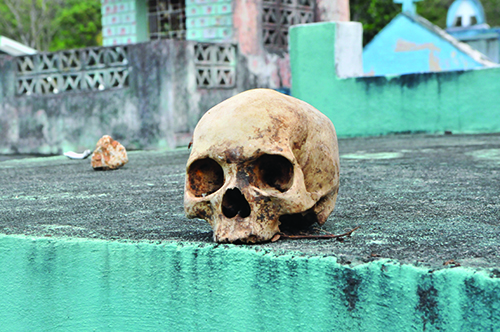 The Business of Death in Haiti
The Business of Death in Haiti
When I visited the cemetery next to Hôpital Sacré Coeur in 2012, I was shocked to see human bones and other remains all over the grounds. The cemetery keeper even prompted us to take his photograph holding a human skull (and then asked for money after the photograph was taken). The seeming disrespect and lack of care for the deceased that was prominent in the cemetery was a stark contrast to the religious views discussed earlier in this article.
A fire crackled in the back corner of the cemetery. We were told that the bodies of the people whose family members could not afford the price of the grave site rental, were being disposed of in that fire. If a family did have the money for a grave site rental, cemetery workers would dig up the bodies of the deceased and burn them to make room for more bodies and generate more income.
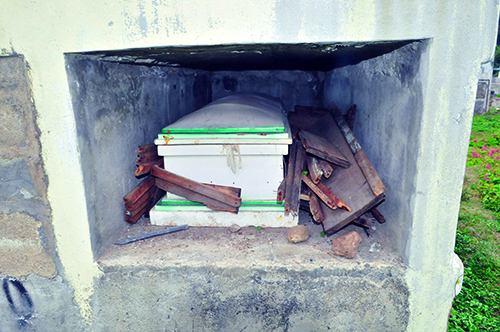 Freelance undertakers wait outside cemeteries to make deals with families who cannot afford proper burial.7 And even after the grave of a loved one had been fully paid for and secured, the deceased can still fall victim to grave robbery.8 Some morgue workers were even accused of hiring hit men to ensure steady income for their business.
Freelance undertakers wait outside cemeteries to make deals with families who cannot afford proper burial.7 And even after the grave of a loved one had been fully paid for and secured, the deceased can still fall victim to grave robbery.8 Some morgue workers were even accused of hiring hit men to ensure steady income for their business.
If being alive, enduring the harsh conditions of Haiti weren’t enough; Haitians also have to deal with the atrocities that can happen to them after they have passed on. After the earthquake, “Dead Body Management” was an important part of the disaster relief efforts. Making sure that the bodies were identified and the families of the deceased were notified was a huge priority that compounded the effects of post traumatic stress among surviving family members. Because the earthquake left so many Haitians in poverty, preserving the dignity of the deceased has become harder.
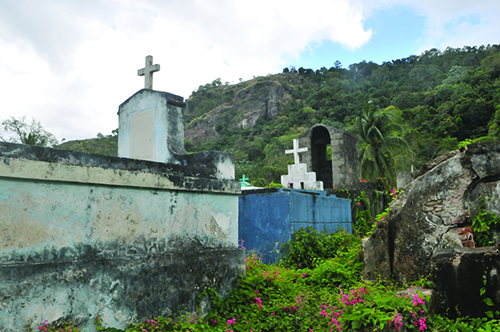 Honoring the Deceased
Honoring the Deceased
Ancestry Day, observed every January 2nd, is a Haitian holiday reserved to give thanks to ancestors and other loved ones who have died for freedom, as well as those who have passed on during the last year. On this day, families share meals and attend parades and other folk festivals.9
Honoring the deceased is incredibly important to the Haitian people. Haitians celebrate their culture by giving thanks those who have lived before them. They believe their future depends on the ways they honor their ancestors. Regardless of economic situation or religious beliefs, Haitians strive to make sure their legacy is preserved and their culture is portrayed with dignity, even after death.
References:
1 http://www.indexmundi.com/haiti/demographics_profile.html
2 http://valleyfuneralandcremationservice.com/Ethnic_Funeral_Customs_186702.html
3 http://ezinearticles.com/?Haitian-Vodoun-Perspectives-on-Death-and-Dying&id=3172822
4 http://haitipartners.org/who-we-are/haiti-statistics/
5 http://www.haitiobserver.com/blog/death-and-funeral-rituals-in-haitian-culture.html
6 http://www.reachouttohaiti.com/?p=152
7 http://www.haitiobserver.com/blog/death-and-funeral-rituals-in-haitian-culture.html
8 http://www.reachouttohaiti.com/?p=152
9 http://www.fofweb.com/wgco/Print.aspx?iPin=EHCI0755&WinType=Free
